Update time:2024-12-20Visits:3949
A Desperate Emergency Call
On November 24, 2024, the International Medical Center of Huashan Hospital received an urgent call from the emergency department: A 40-year-old Indian patient, John (pseudonym), had been admitted with slurred speech, swallowing difficulties, facial stiffness, and rapidly progressing limb paralysis. Suspected to have Guillain-Barré Syndrome (GBS), a rare autoimmune disorder attacking peripheral nerves, John’s condition was deteriorating by the hour.

Rapid Decline: From Fatigue to Paralysis
John, a dedicated engineer, had been working 14-hour days in India despite a recent fever and cough. After flying to China on November 18, he developed alarming neurological symptoms—first, unclear speech, then numbness in his limbs. By November 20, he could barely walk. Local hospitals initially misdiagnosed him with a respiratory infection, but as his paralysis worsened, his colleagues rushed him to Huashan Hospital, renowned for its neurology expertise.
Race Against Time
The emergency team quickly identified GBS and initiated intravenous immunoglobulin (IVIG) therapy. However, John’s condition defied standard treatment. Within days, he lost nearly all motor function, struggled to breathe, and faced potential respiratory failure.
Dr. Hua Zhenghao and Dr. Li Wei from the International Medical Center, alongside neurologist Professor Chen Xiangjun, re-evaluated John as a rare acute motor axonal neuropathy (AMAN) subtype of GBS—a more aggressive form with high mortality risks. The team pivoted to plasma exchange therapy, coordinated with the transfusion department, and prepared respiratory support.
Bridging Cultural Barriers
Treatment faced an unexpected hurdle: John’s family, unfamiliar with Chinese medical protocols, hesitated. They questioned the need for plasma exchange and debated transferring him back to India. Dr. Li Wei spent hours explaining the risks and urgency, ultimately securing consent and insurance approval.
Triumph of Teamwork
The results were dramatic. After the first plasma exchange on November 27, John lifted his hand. By the fourth session, he stood with assistance, flashing a “V” for victory. Rehabilitation specialists then guided his recovery—from sitting to walking, eating, and finally using his phone.
A Grateful Farewell
Two weeks later, John, stable enough to fly home, gathered his care team for a heartfelt goodbye. He presented a white T-shirt for signatures, vowing to “promote China’s medical excellence” in India. Though facial muscle recovery continues, his doctors are optimistic.
About Guillain-Barré Syndrome (GBS)
GBS is an autoimmune disorder often triggered by infections, causing nerve damage and paralysis. Early intervention with IVIG or plasma exchange is critical. Huashan Hospital’s success underscores the importance of swift, multidisciplinary action in rare neurological cases.
Shanghai Medical Pilot Realizes “Walking Dream” for Bulgarian Girl with Cerebral Palsy
A Shanghai Doctor Uses Ultrasound to “Wake Up” Mother's Alzheimer's
Shanghai Medical Trio Stages High-Altitude Rescue on Flight from Xinjiang
Shanghai Children’s Hospital Uses Remote MDT to Diagnose Rare CIPA
Young Girl With Congenital Biliary Atresia Treated in Shanghai
Shanghai Ninth Hospital Saved a Man with Advanced Tongue Cancer
International Medicine at Shanghai Children's Medical Center in 2025
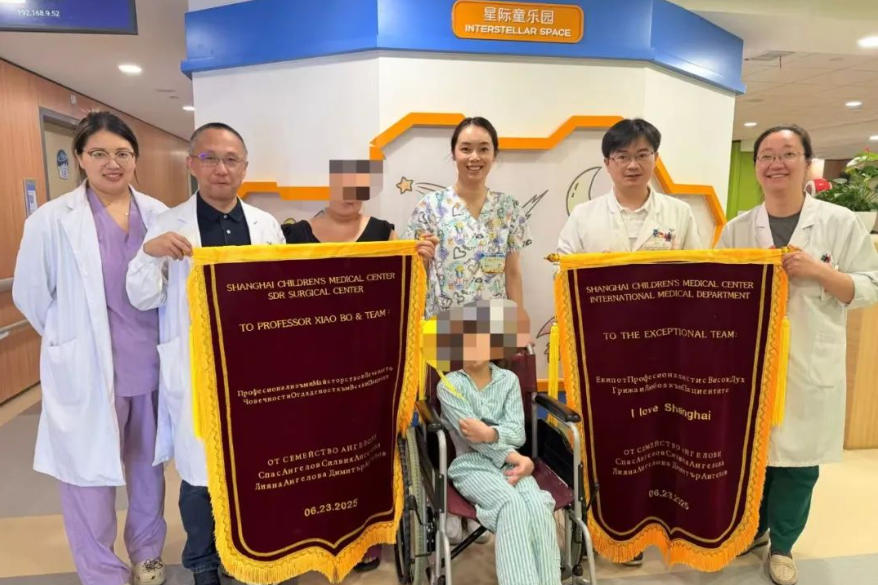
Shanghai Medical Pilot Realizes “Walking Dream” for Bulgarian Girl with Cerebral Palsy
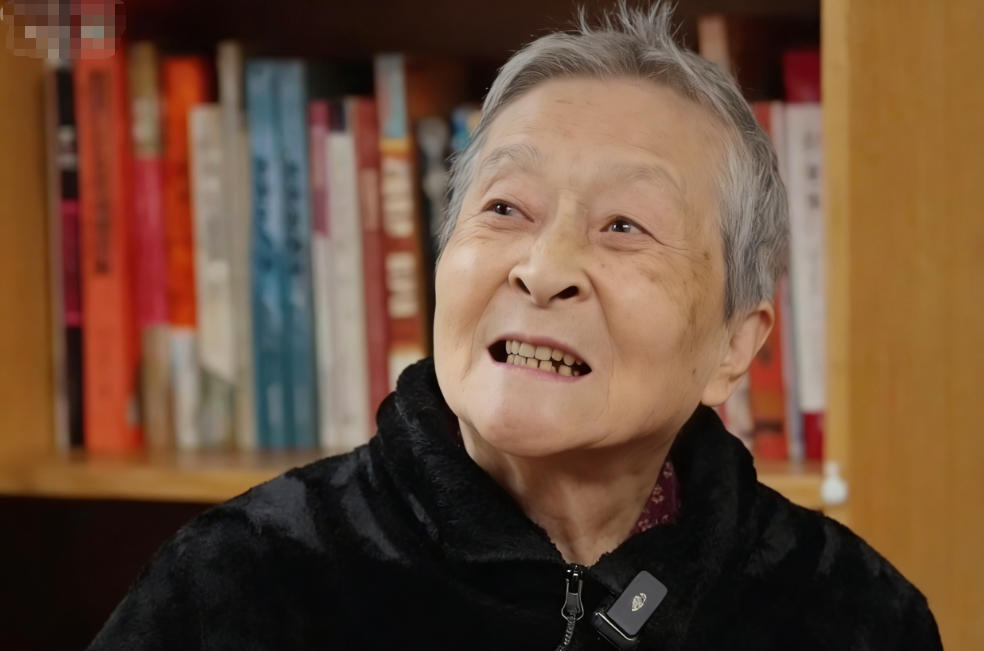
A Shanghai Doctor Uses Ultrasound to “Wake Up” Mother's Alzheimer's

Shanghai Medical Trio Stages High-Altitude Rescue on Flight from Xinjiang
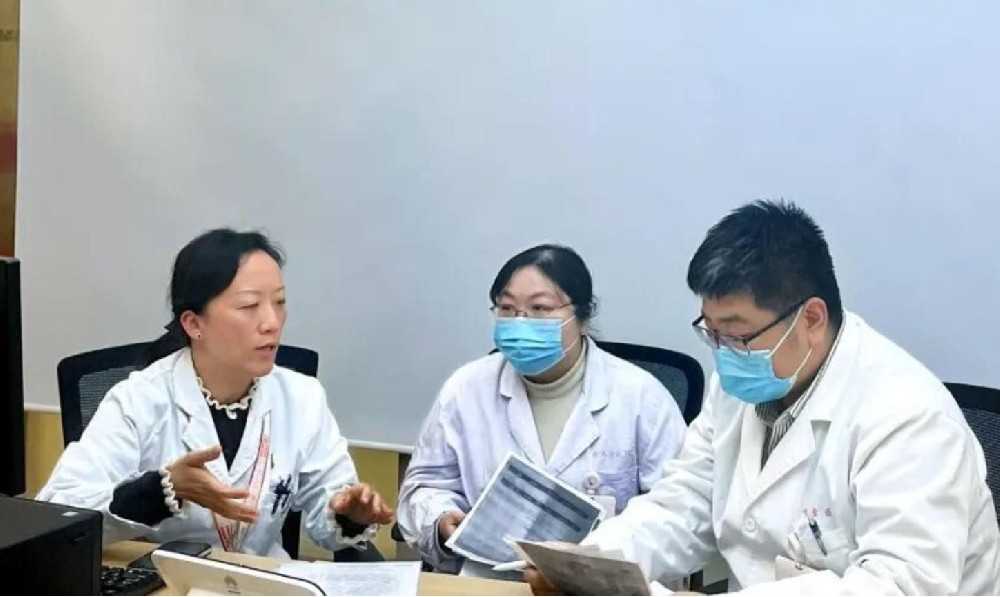
Shanghai Children’s Hospital Uses Remote MDT to Diagnose Rare CIPA
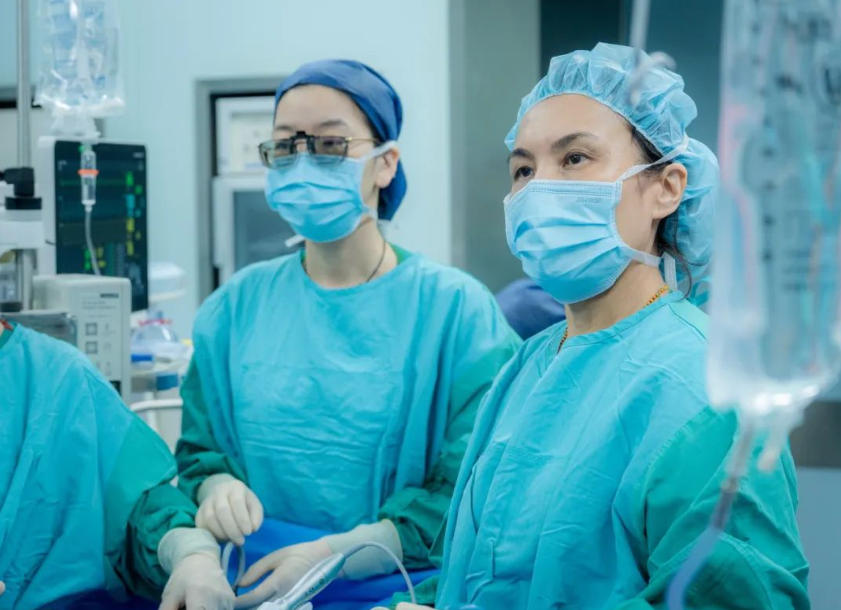
A Seven-Year Lifeline: The Warm Sun of Ovarian Cancer Care
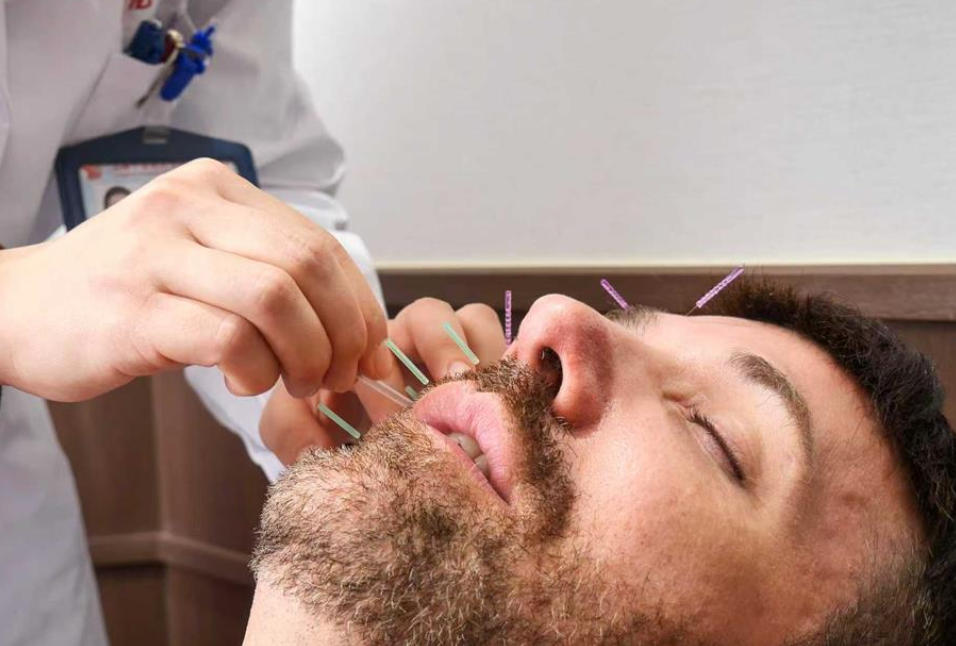
Cosmetic Acupuncture | TCM’s Aesthetic Evolution

Young Girl With Congenital Biliary Atresia Treated in Shanghai

Shanghai Ninth Hospital Saved a Man with Advanced Tongue Cancer

Foreign Tourists Experience TCM in Shanghai

International Medicine at Shanghai Children's Medical Center in 2025